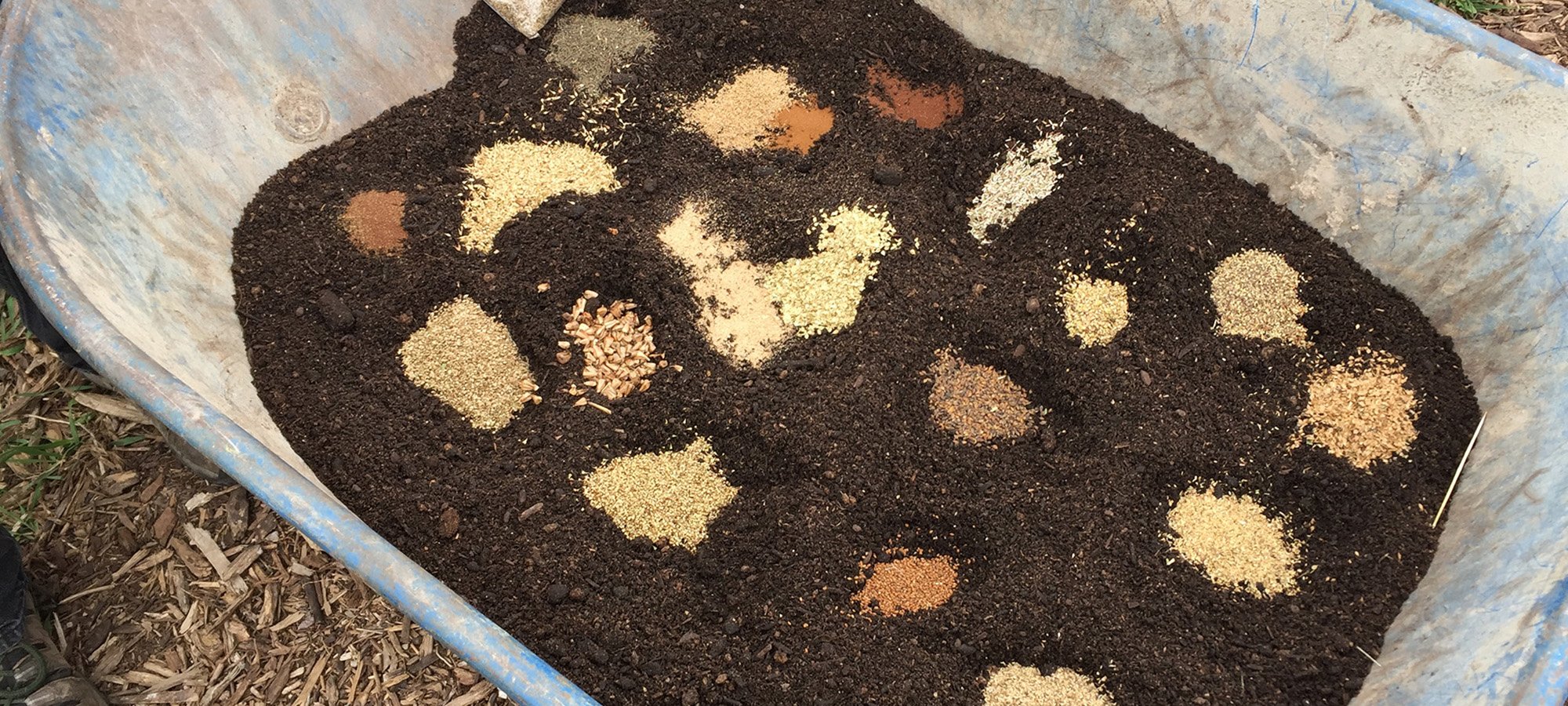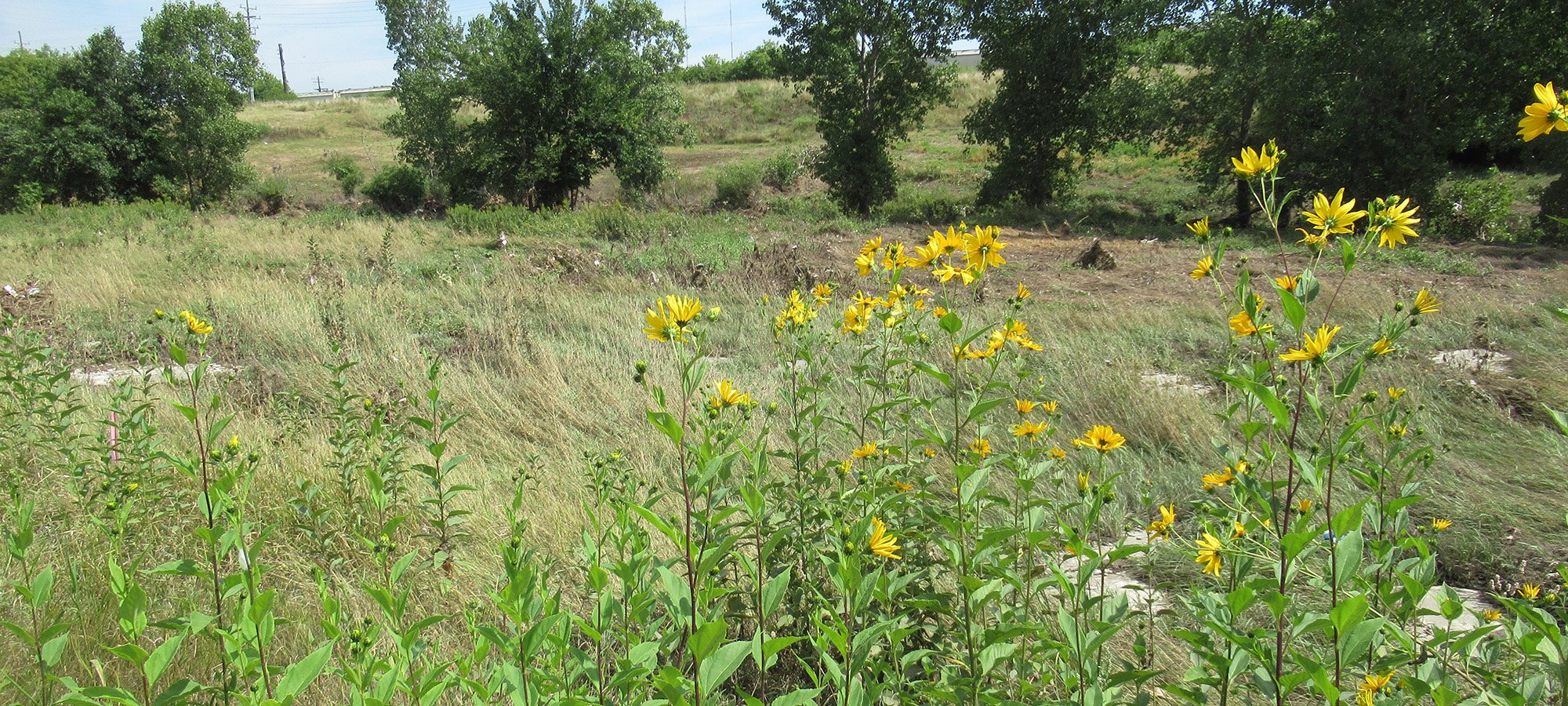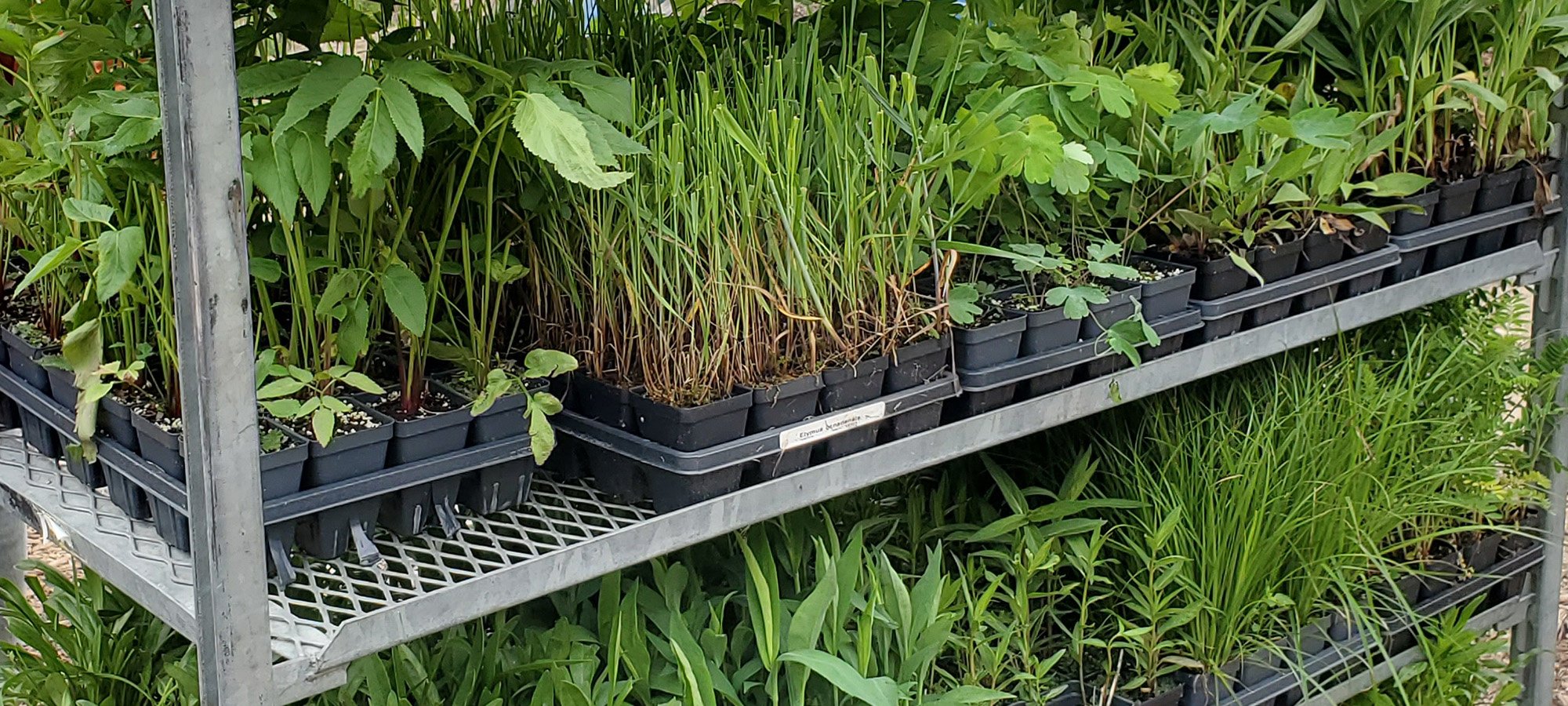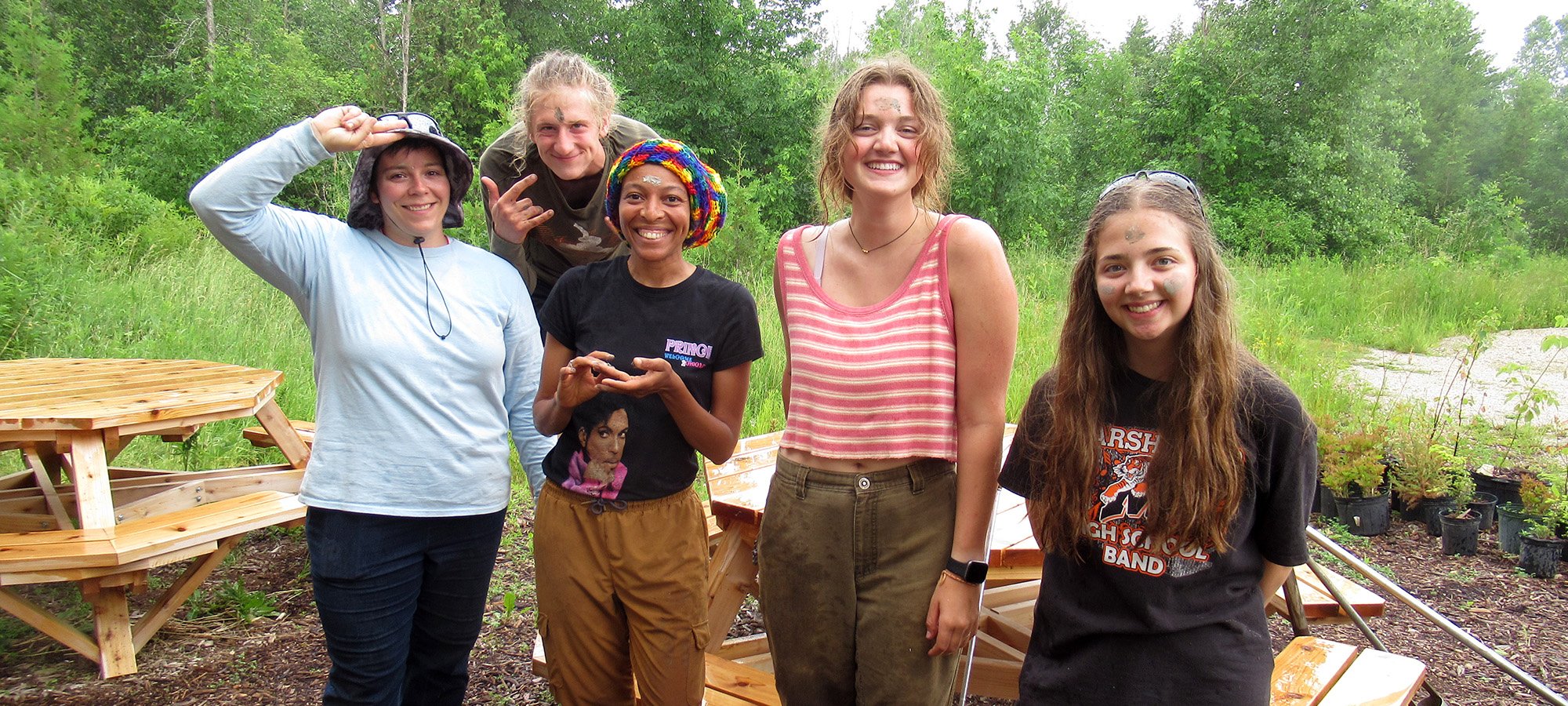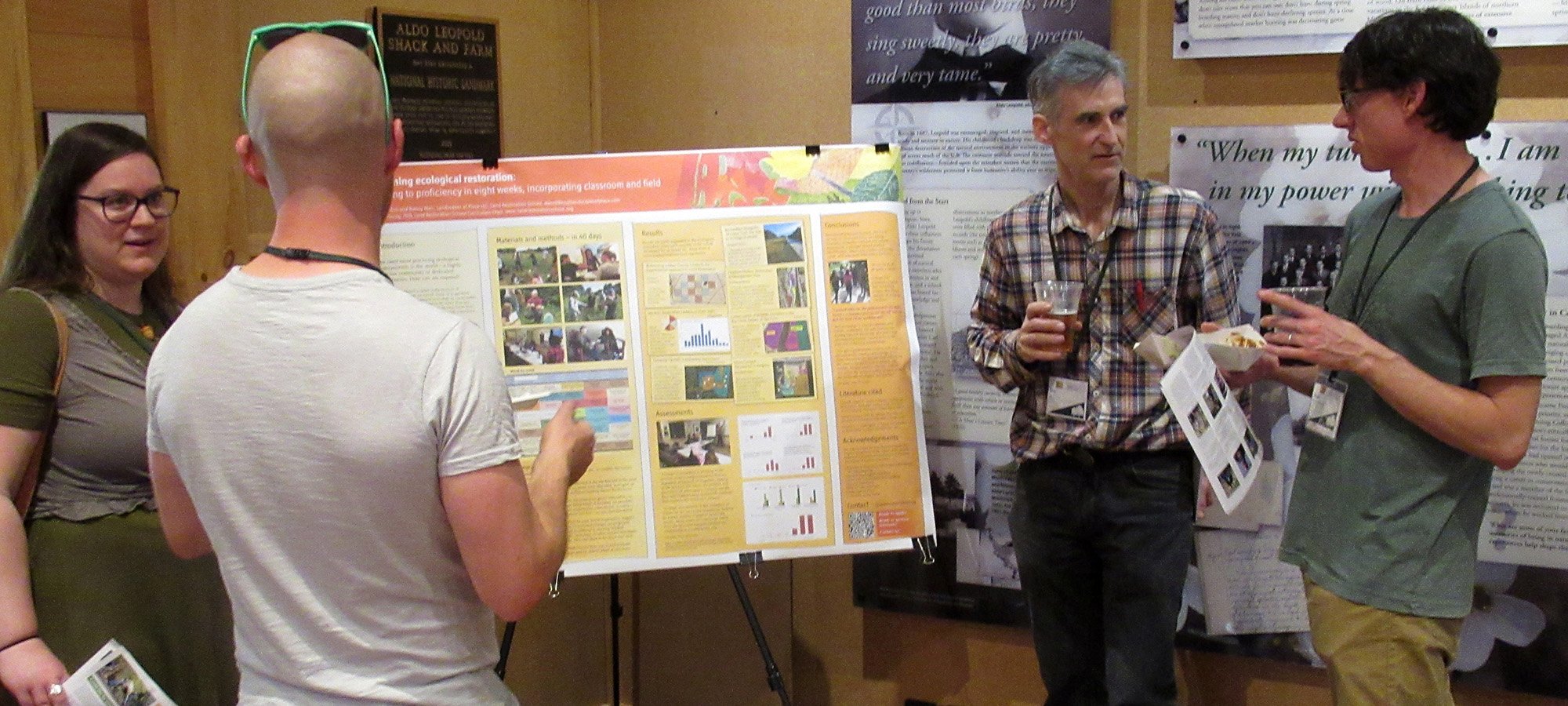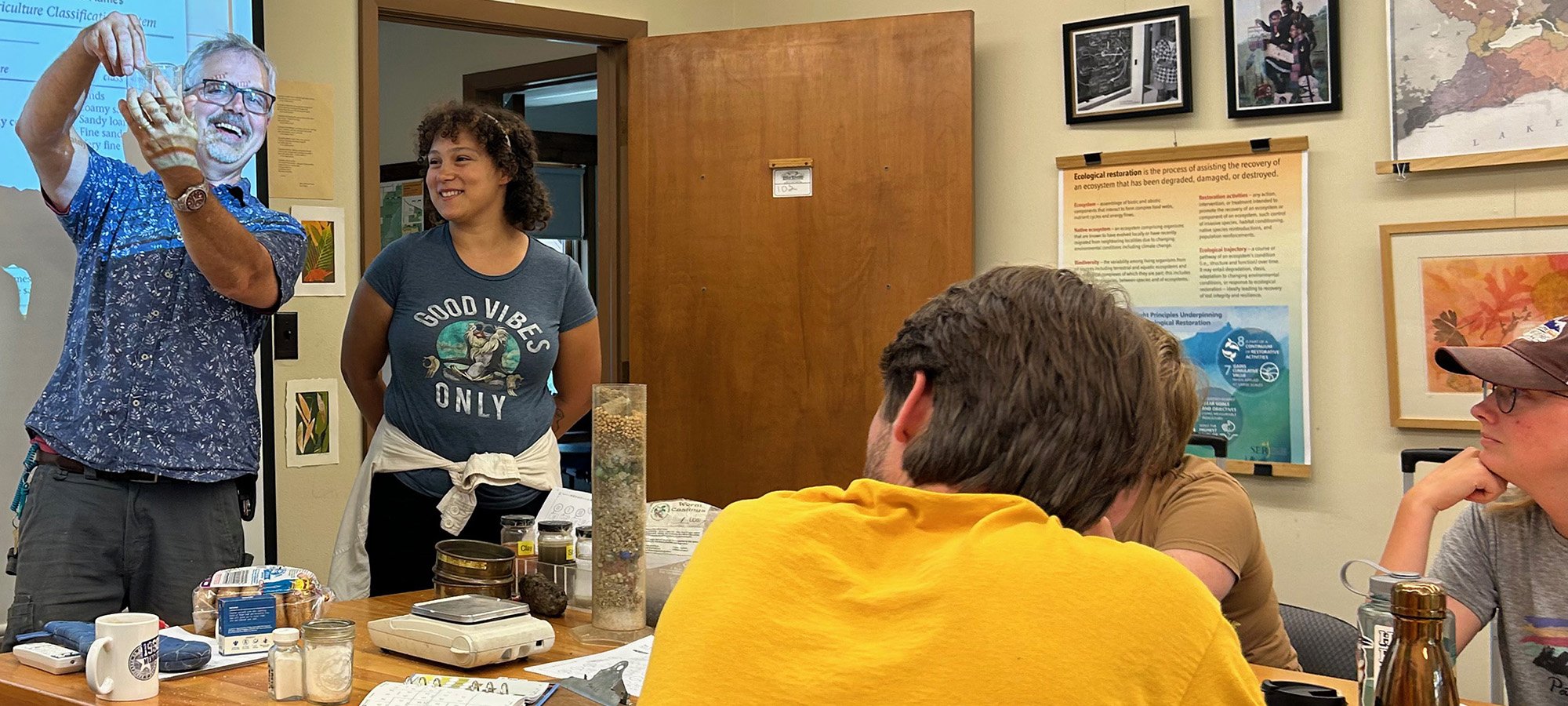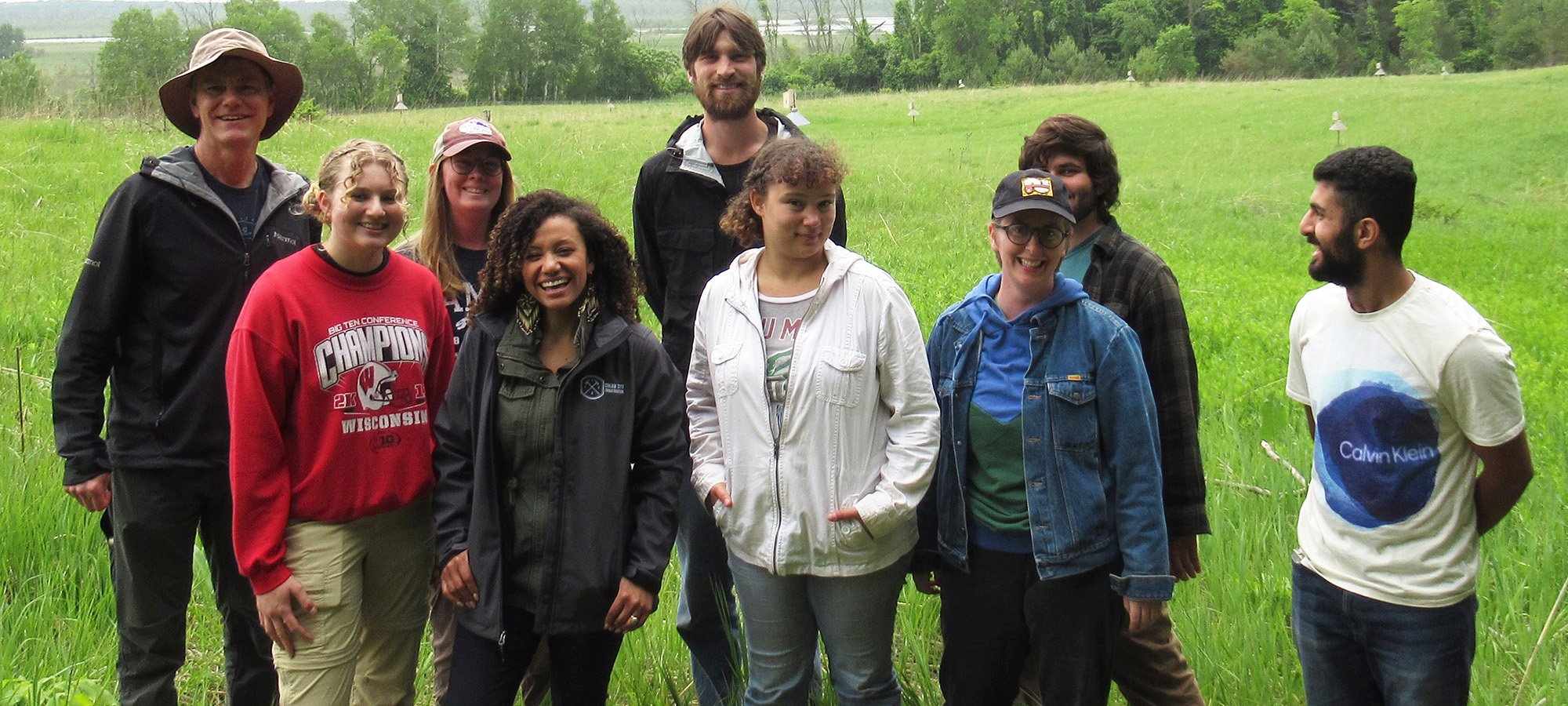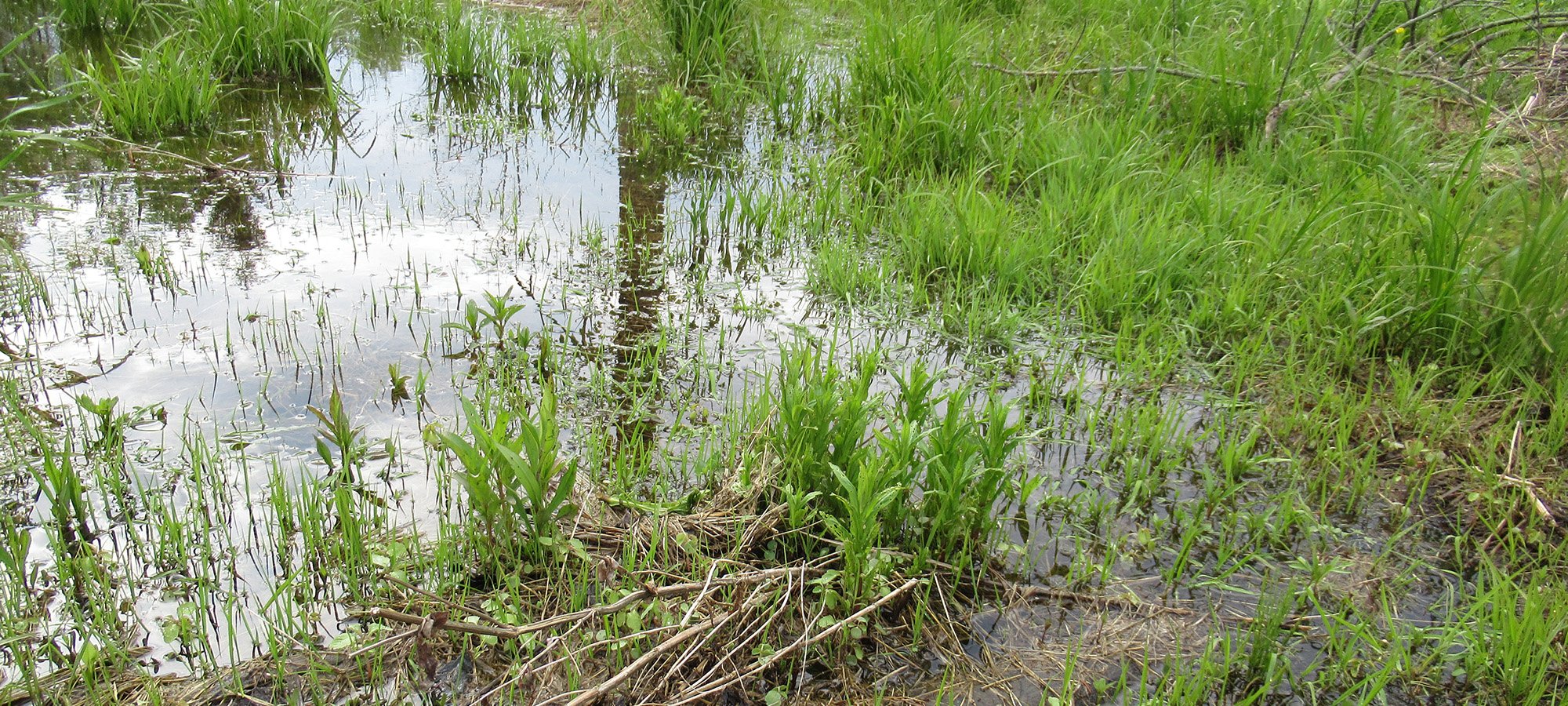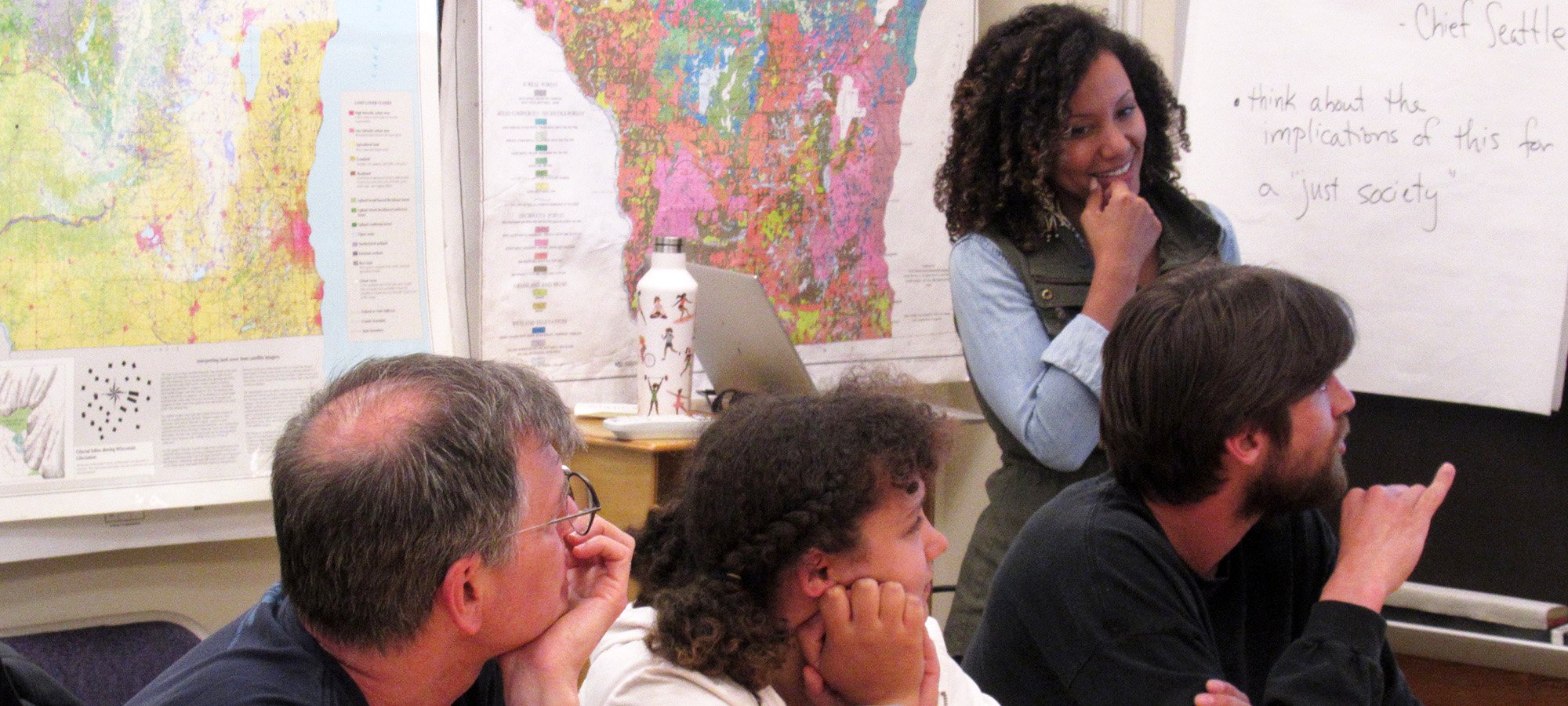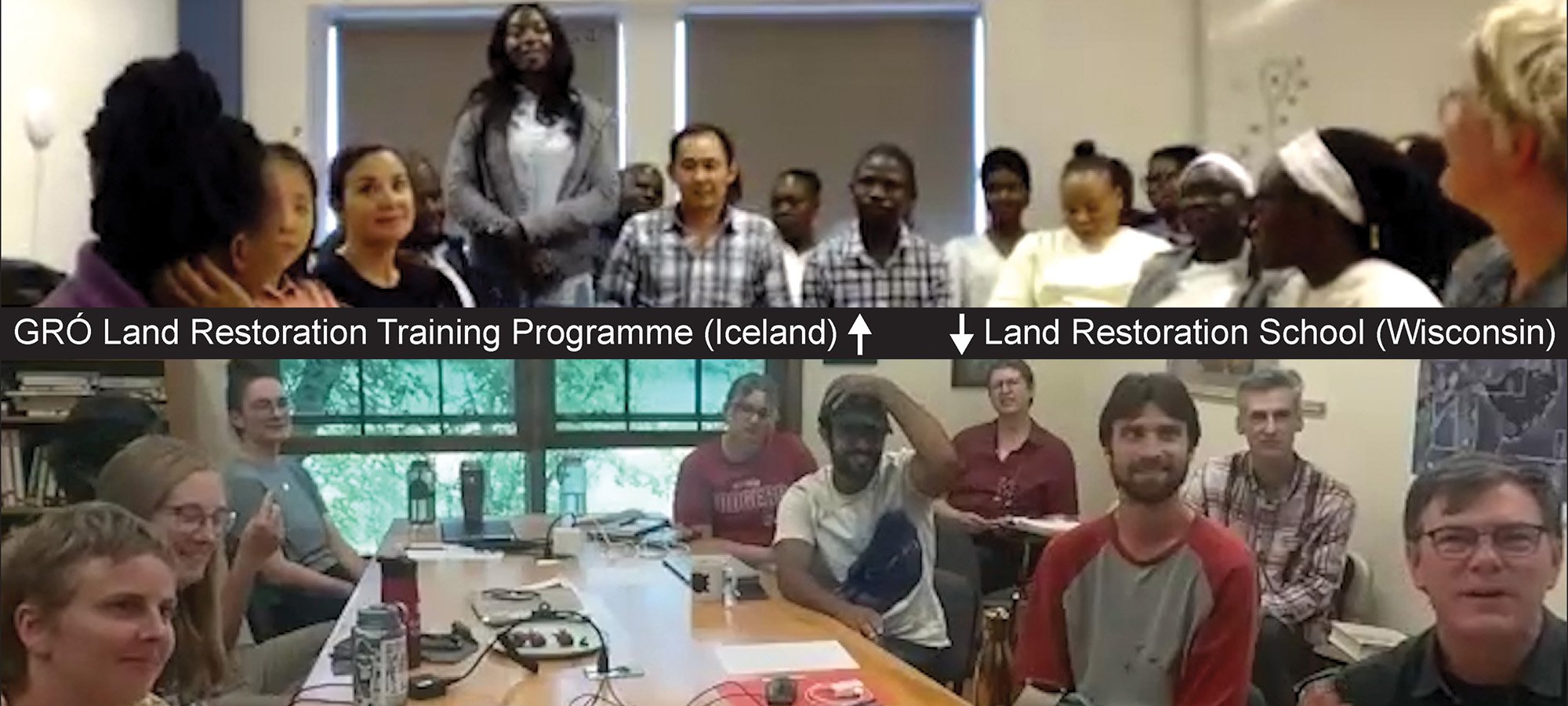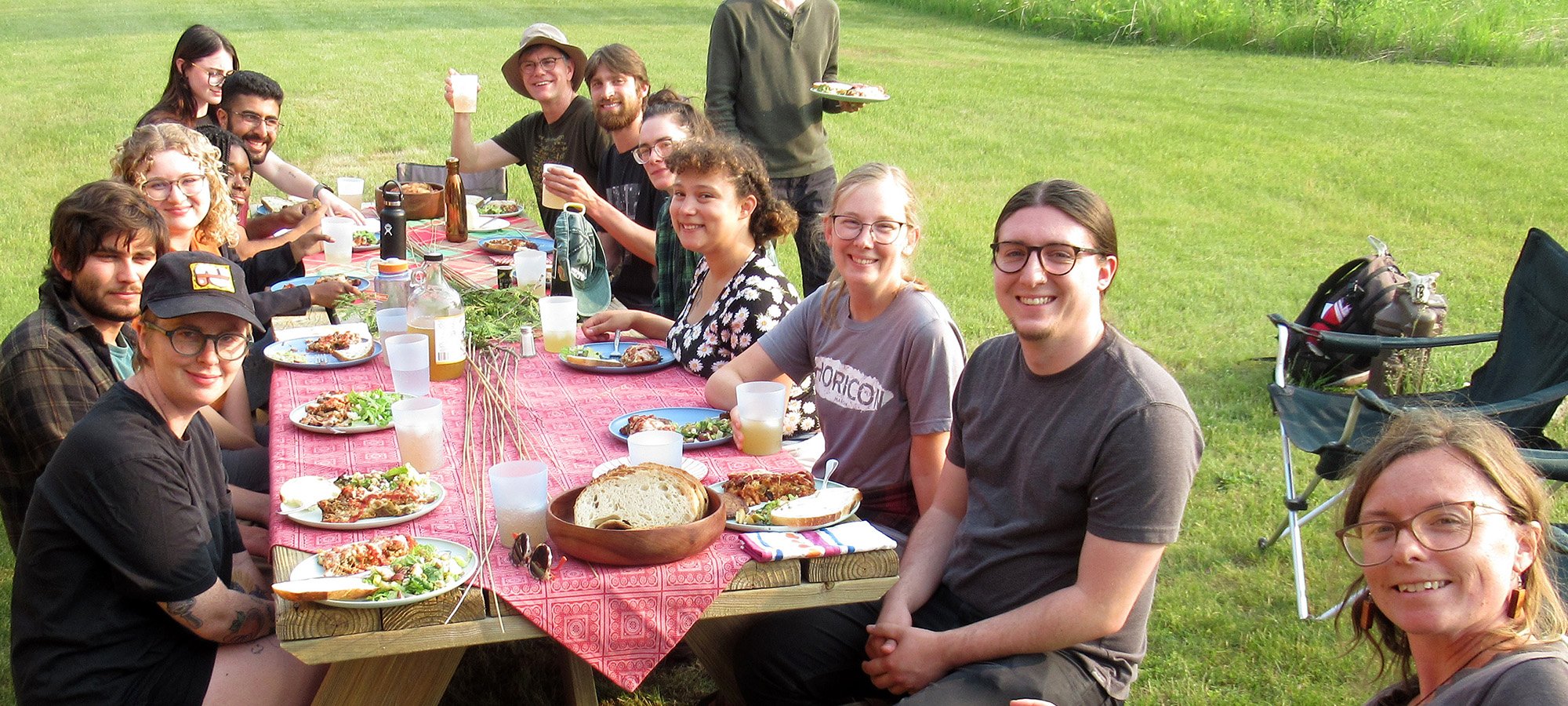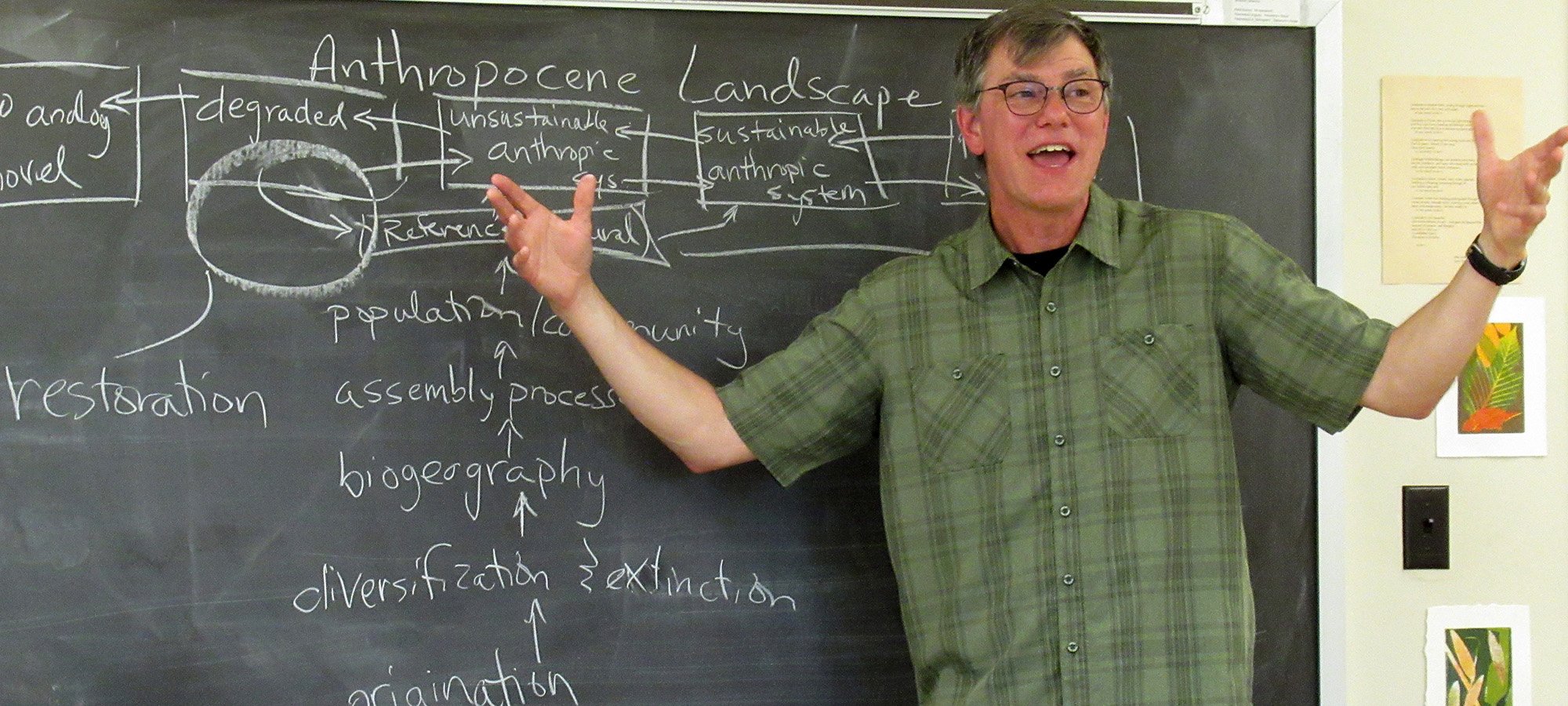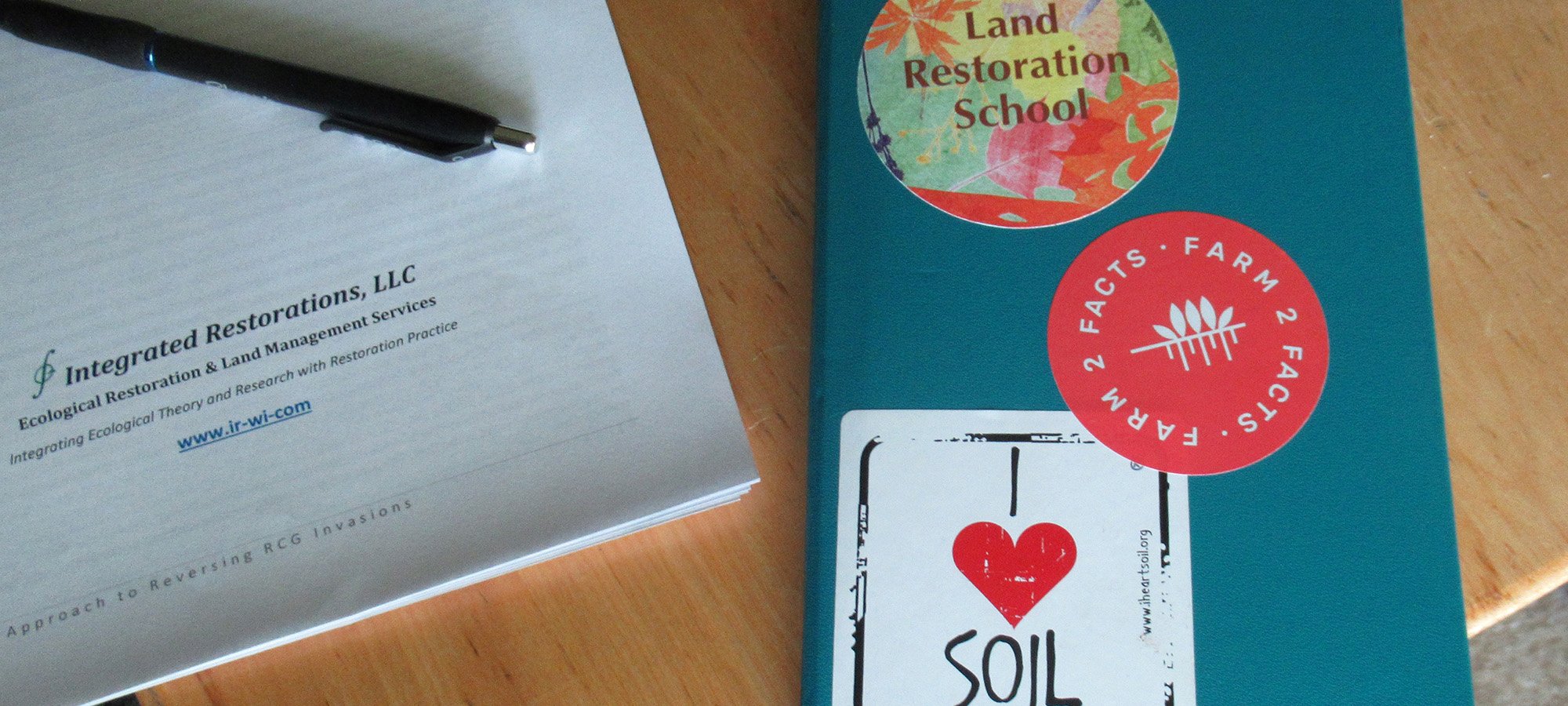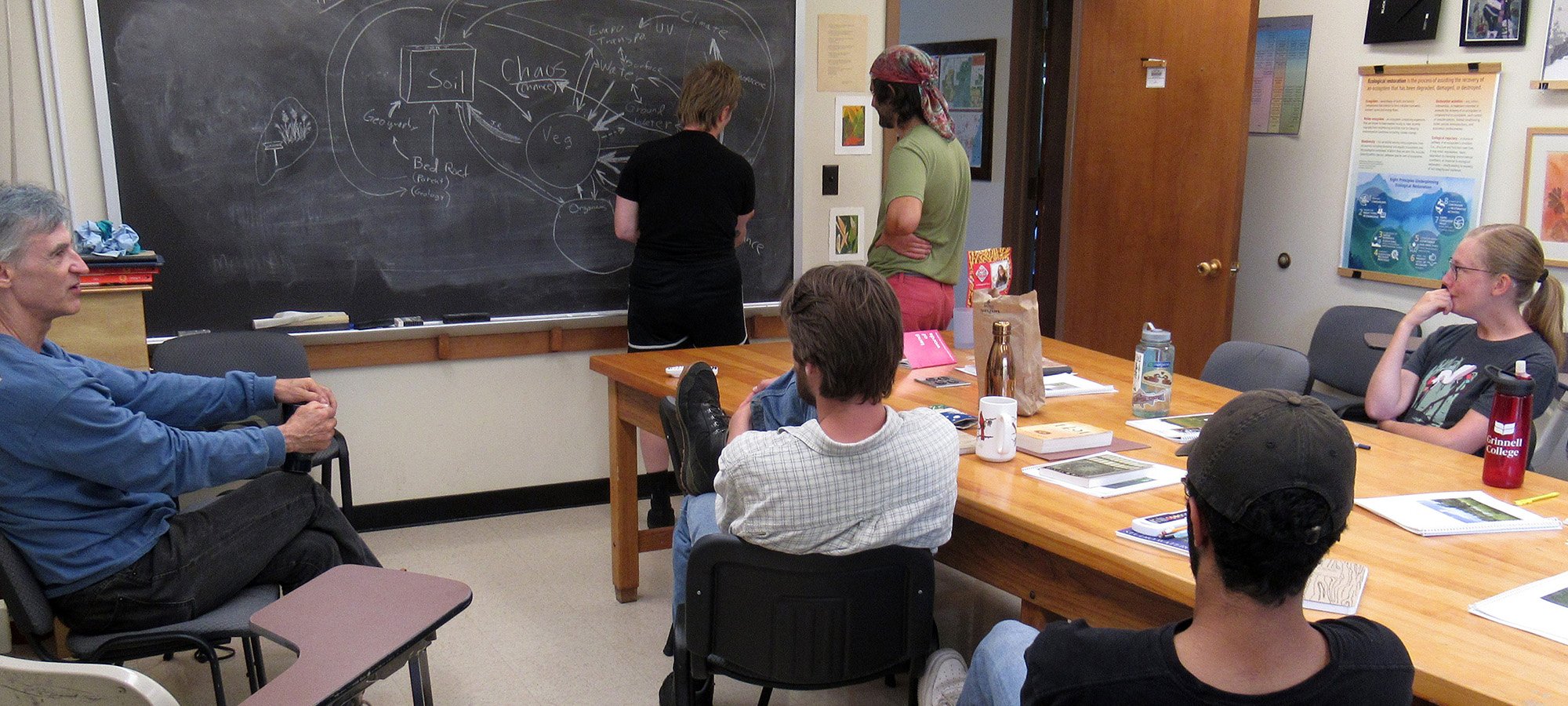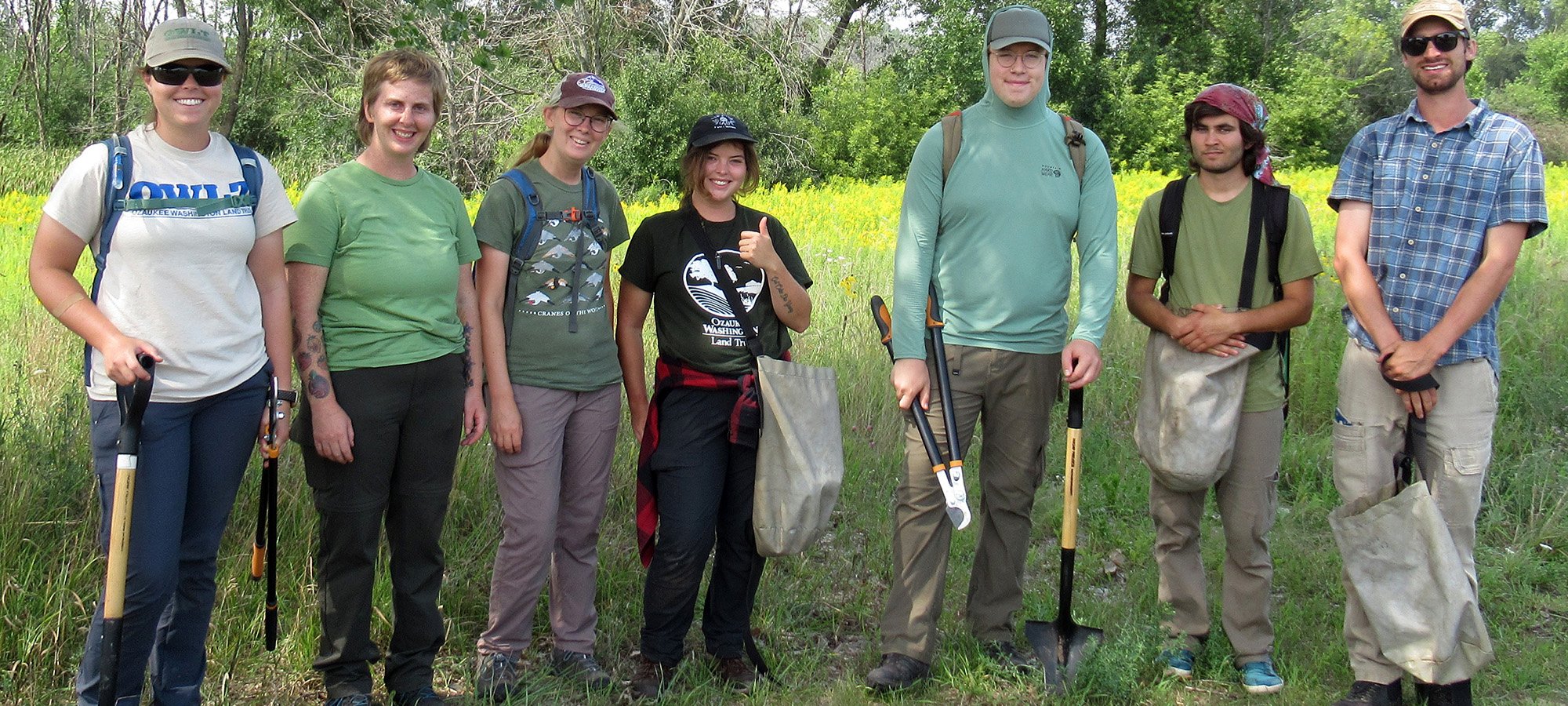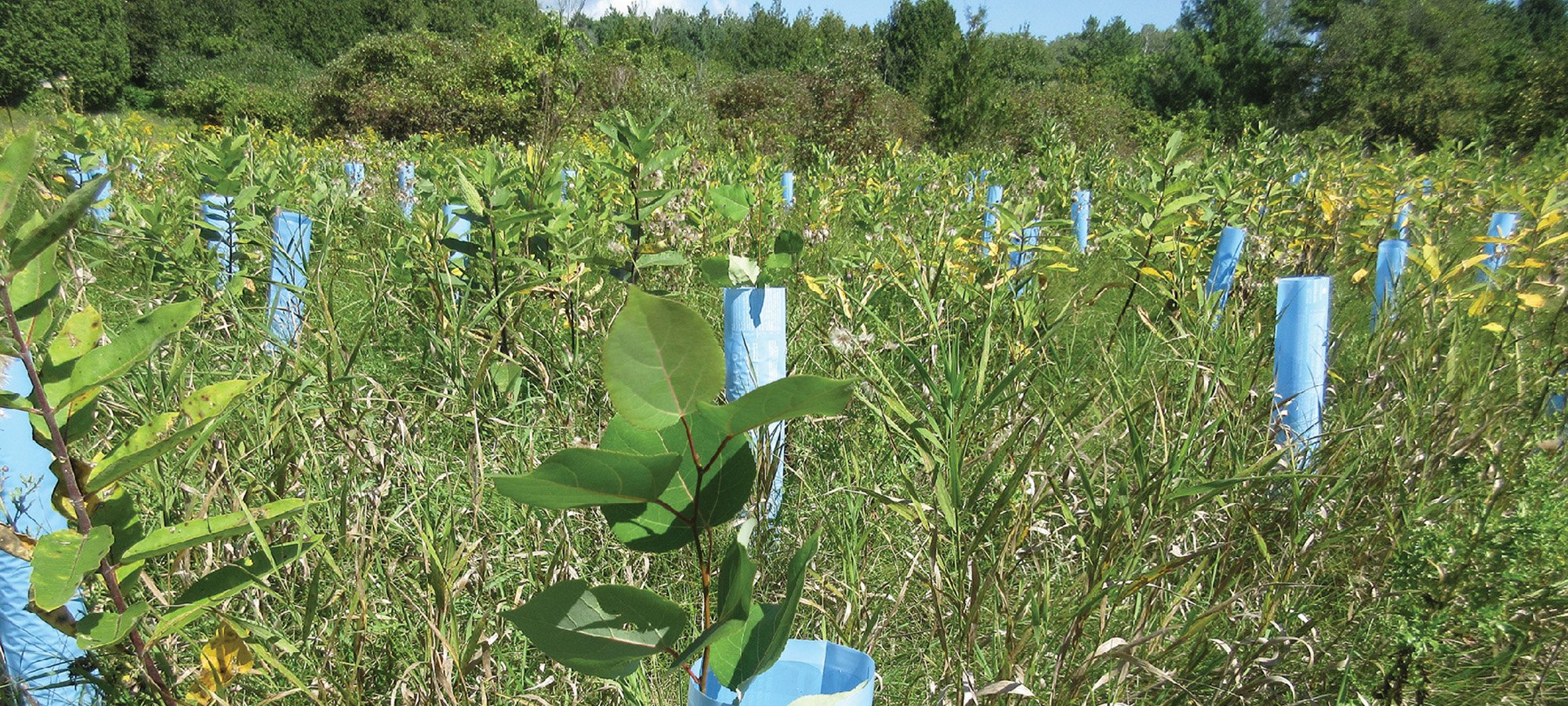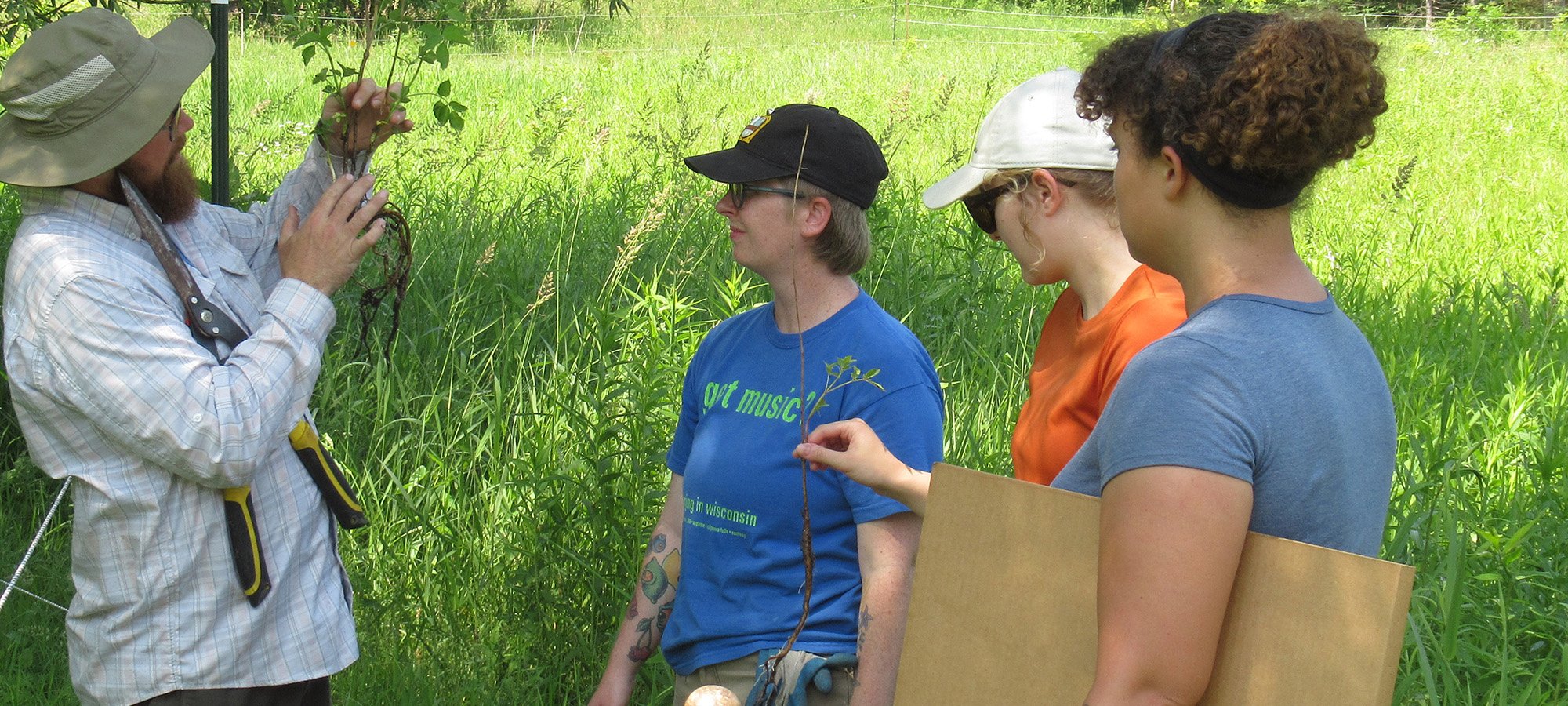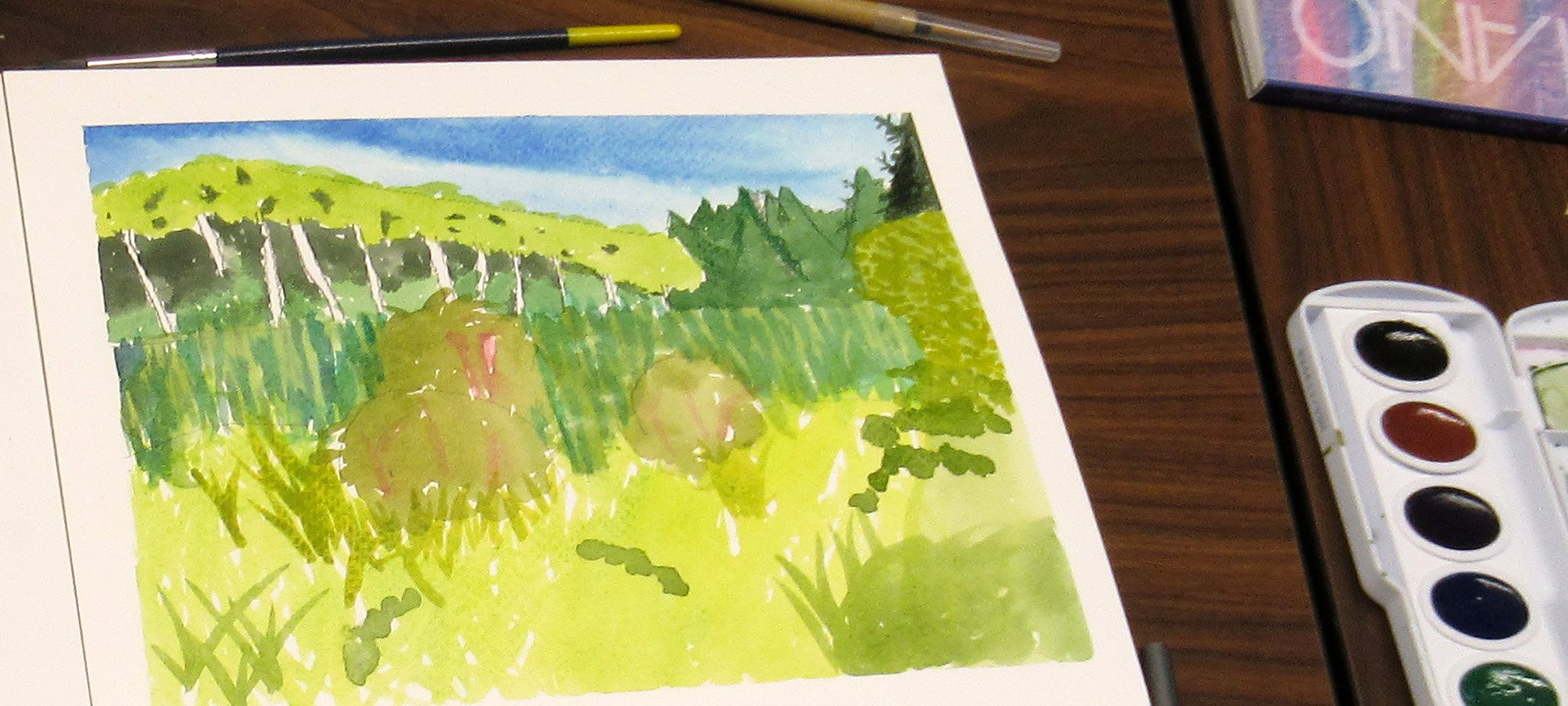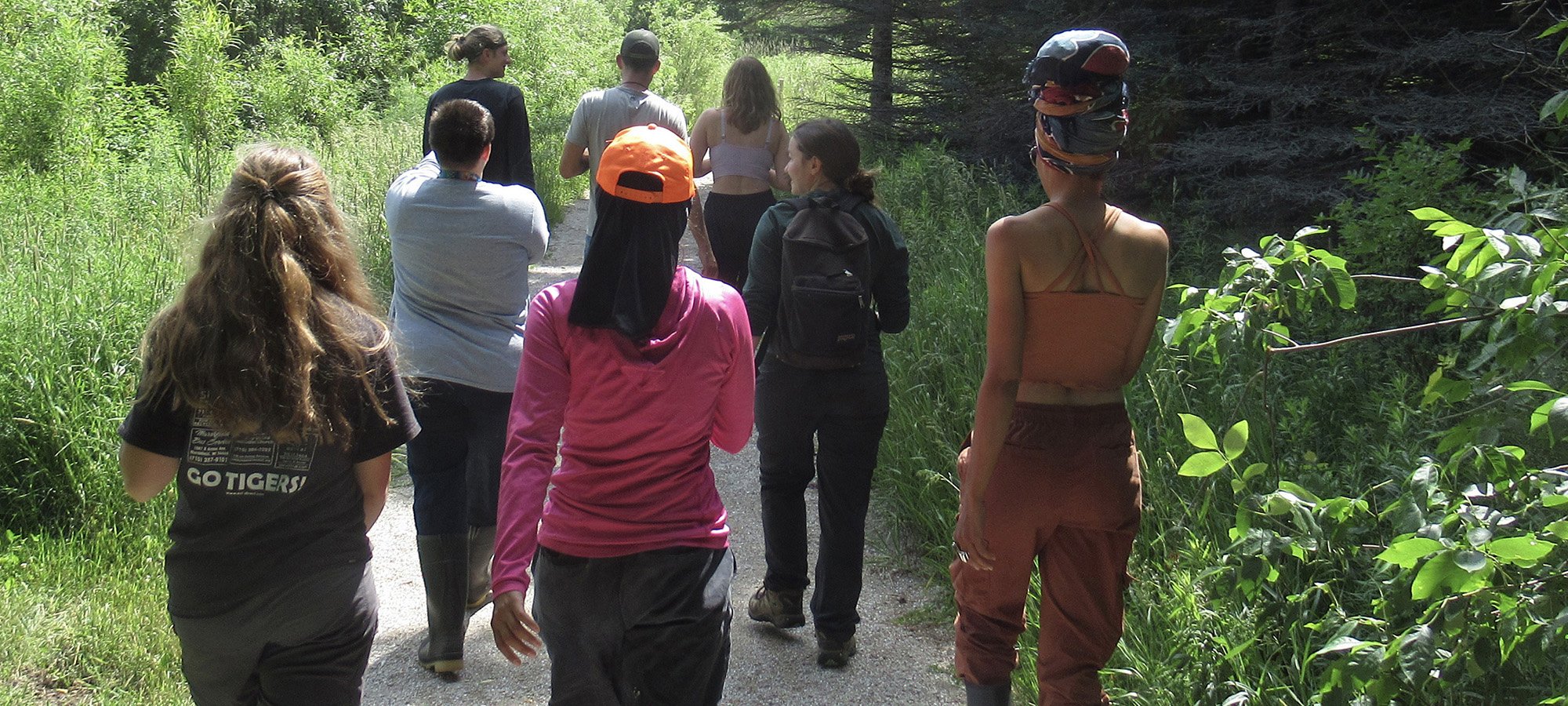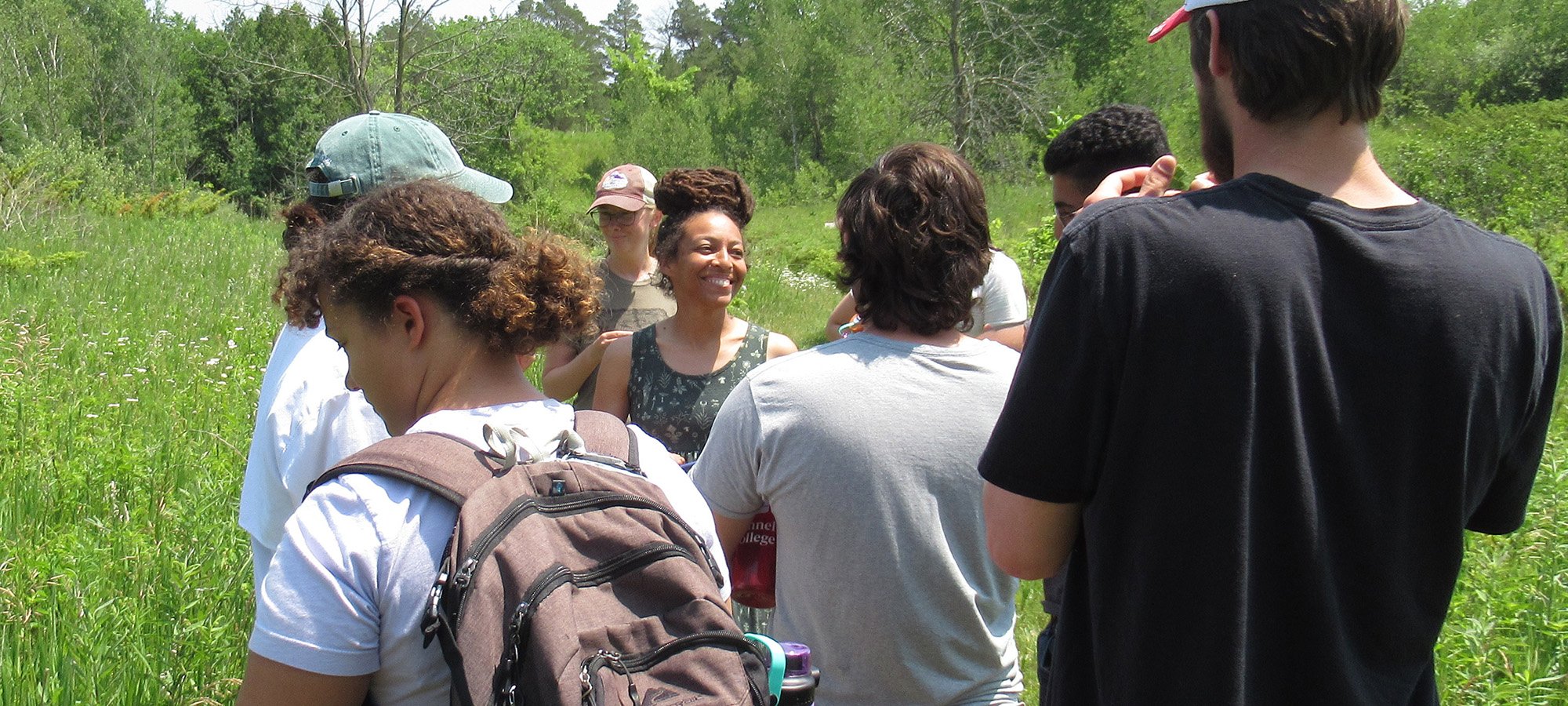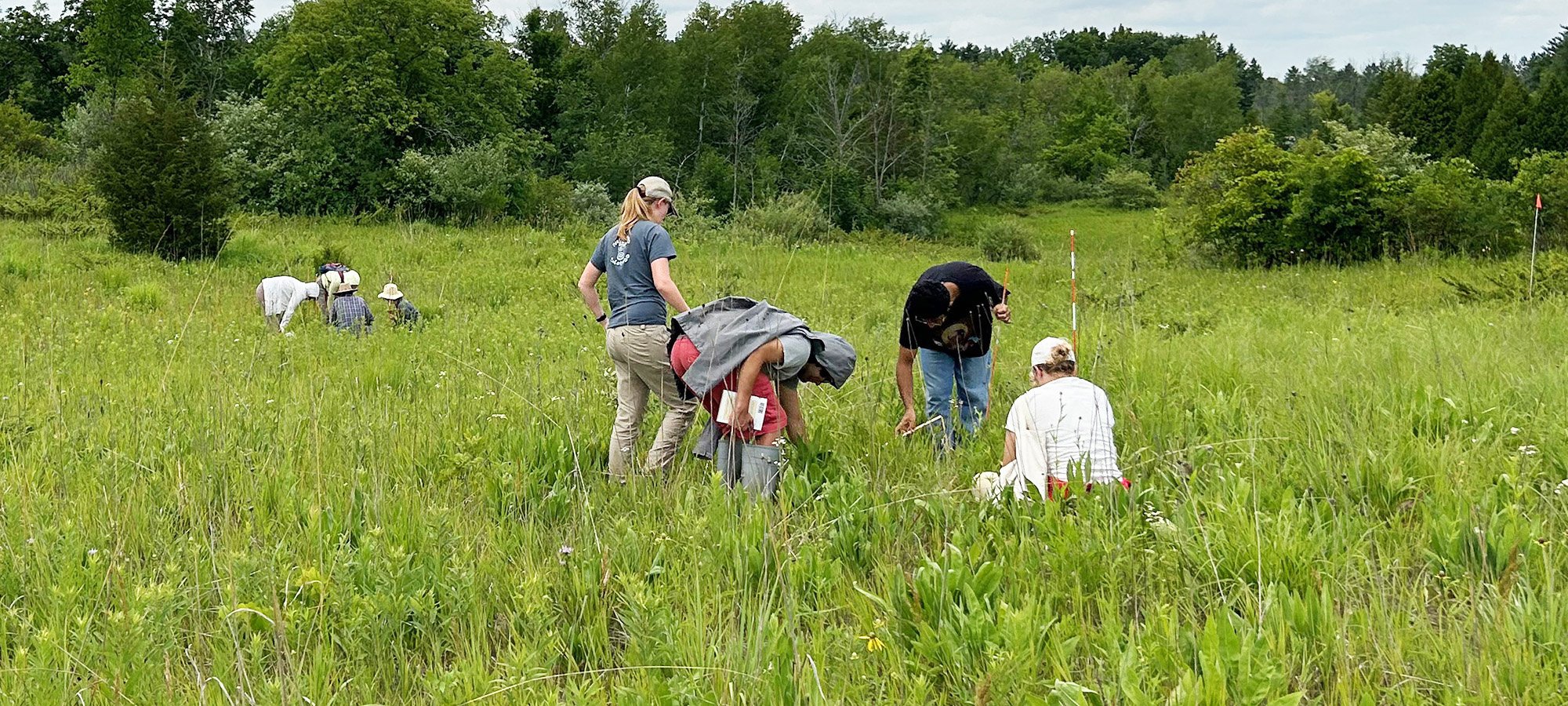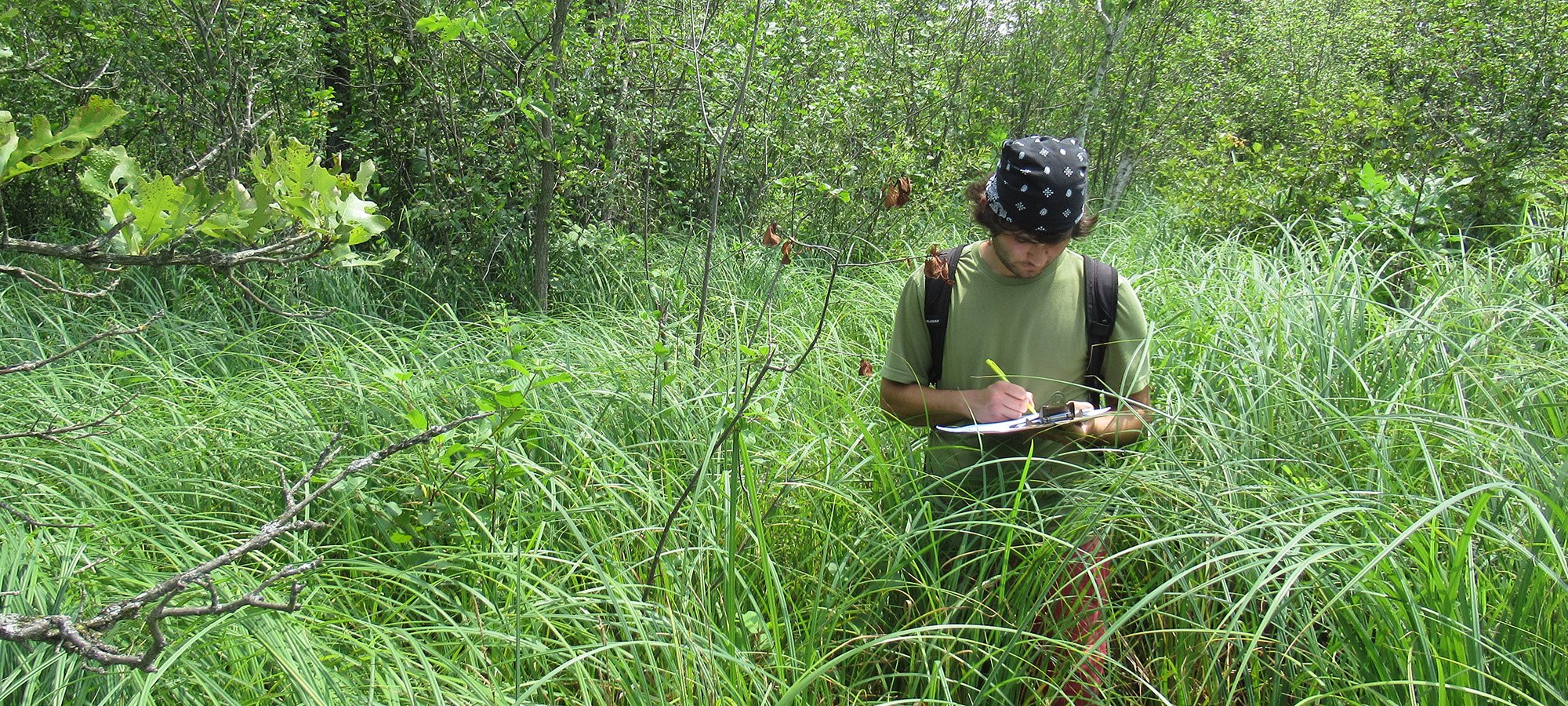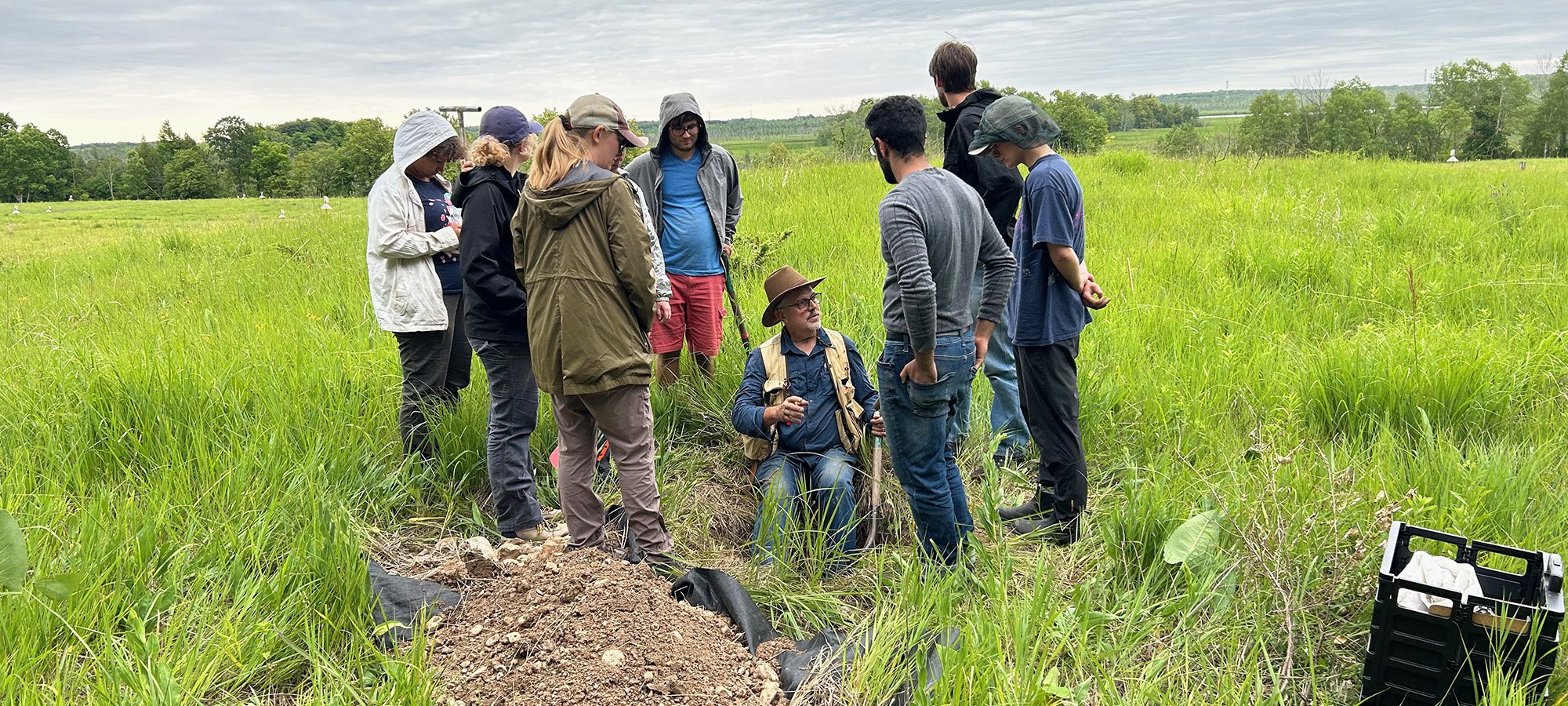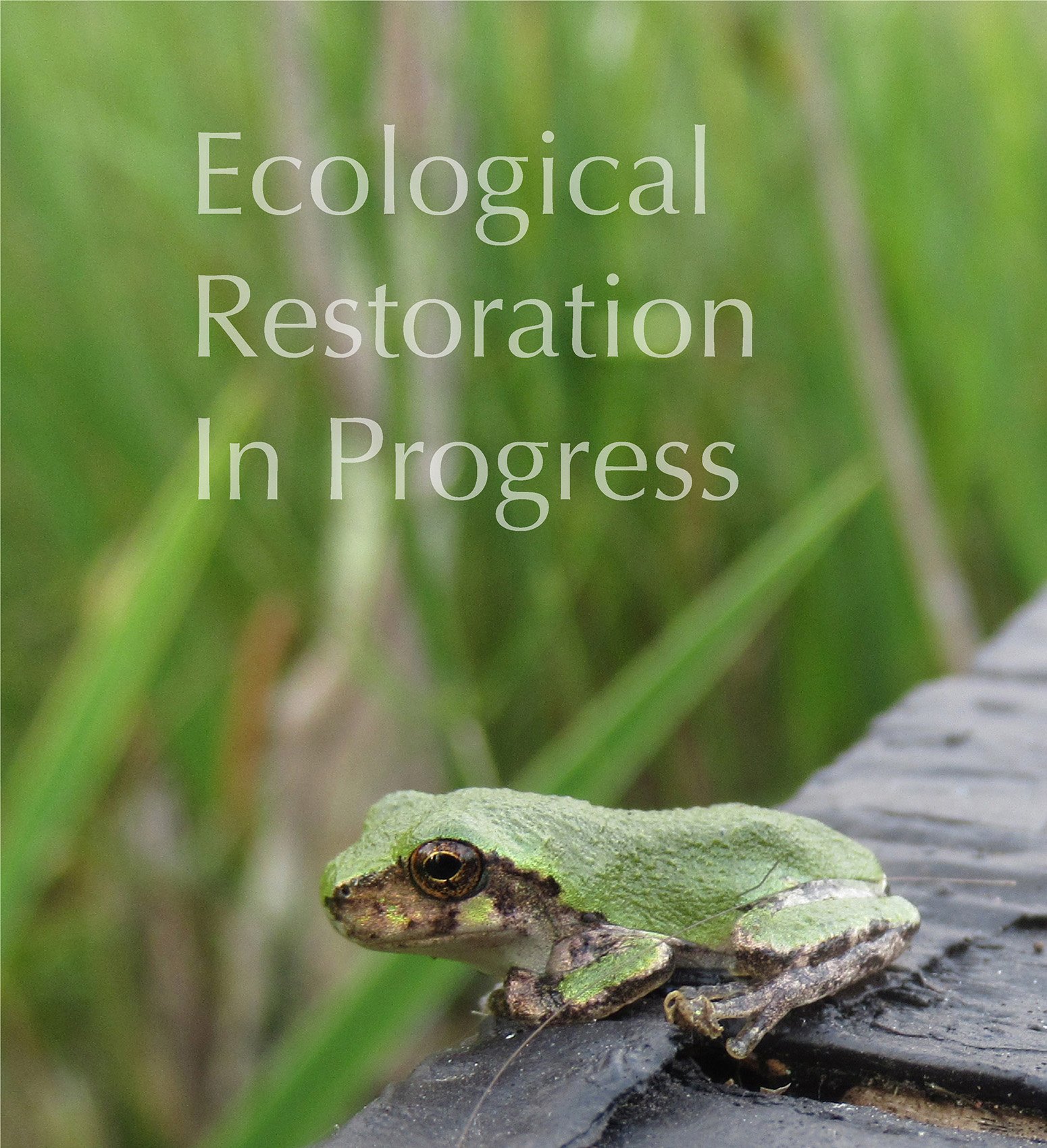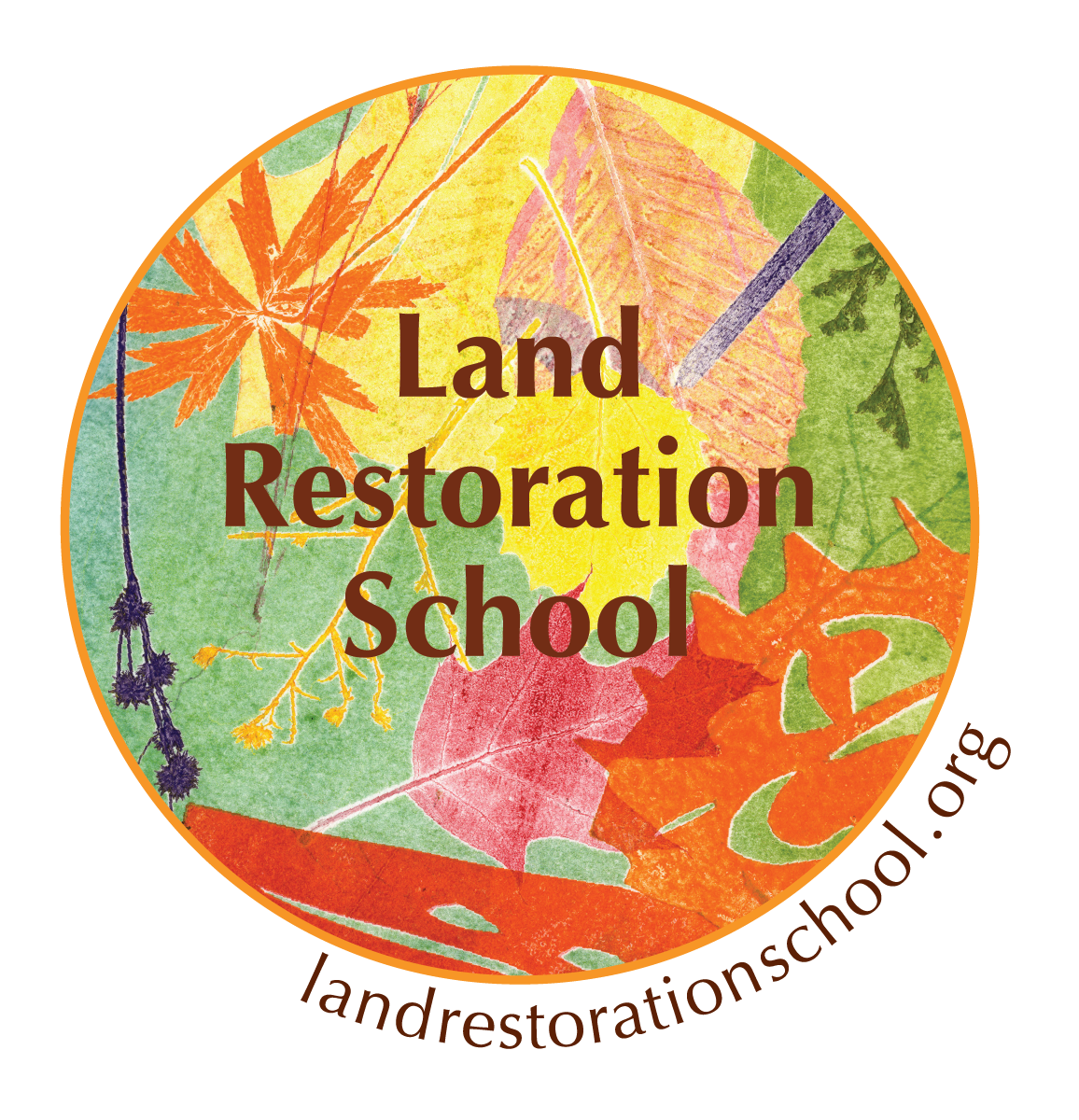We welcome all who believe in diversity, equity, belonging, and justice including environmental justice –
who strive to embody these and similar ideals in words, votes and actions.

The Land Restoration School is a paid, collaborative learning and transformative work experience. This academic program teaches the principles, practice and planning of ecological restoration for lands that need healing — an educational immersion in land restoration.
Land Restoration School
We believe a diversity of backgrounds, experiences and hometowns strengthens the learning experience, allowing each participant to share their skills and learn from one another. We seek environmental justice and embrace our responsibility for diversity, equity, and belonging.
Read more about the Land Restoration School Vision.
Applications are now open for Summer 2026! Apply here.
Land Restoration School is located in the Milwaukee-North area, in partnership with Restoring Lands (formerly Ozaukee Washington Land Trust), Mequon Nature Preserve, Nearby Nature Milwaukee, and the University of Wisconsin-Milwaukee Field Station. For information, see Resources.
Adults who are career-changers, those seeking a new path forward in ecological restoration, and college students planning to enter the field – are all welcome.
Below is a visual overview of what LRS is like! And read what participants have to say, below.
Ecological Restoration is...
“This is collaborative work. Among people and plants and entities and schools of thought and artists and time. Ecological restoration is messy, imperfect, unending, and profoundly rewarding. Ecological restoration is rooted in hope, guided by listening to our teachers, and powered by love in action.”
“ER is the process of tweaking systems and structures to allow a place to be how it yearns to be.”
“Ecological restoration is a means of healing degraded land… We can help realign the rhythms, values and habits of our lives and care of one another through learning to restore the ecosystems and have healthy, reciprocal relationship with the land.”
“I believe the core principles of restoration are reverence and respect for a landscape. Diversity and inclusion of both ideas and people. And most importantly, understanding that restoration is ongoing process.”
“… Assisting in the process of recovering ecosystems that are degraded, destroyed, or forgotten; looking at the herstory, the future, the present and how these all affect space, carrying out the how and implementing sustainable methods that maintain the restorative process.”
“… The assistance of nature on her successional pathway, helping to initiate positive change in landscape health, being aware of community needs from the land and trying to mediate the relationship in a constructive way.”
“Ecological restoration creates safe and healthy space for people to learn and grow, helps reverse impacts of climate change and creates awareness of importance of natural areas, helps improve human health, creates meaningful work.”
“Ecological restoration hopes to convey that all plants, fungi, animals and other life forms are our relatives that have fundamental roles in our planet’s ecosystem. Restoration acknowledges the injustices of the past and present and seeks to provide all people access to the gifts provided by mother earth.”
(2025, 2024, 2023 and 2022 LRS Alumni)
Interconnectedness
“I mean we saw it demonstrated day in and day out. From soils to hydrology and everything in between this system is interconnected. All these different perspectives from the natural sciences supplement one another.”
“To assist in restoring the land is understanding the inherently complex relationships the land is a part of… the geologic underpinnings, the soil, the water, the stewards, the effects of our extractive and capitalist governing forces, climate, weather, wind, plants, trees, shrubs, and all the fauna, fungi, macro and micro invertebrates, time, and everything else unseen. This is an abbreviated way to say ecological restoration is understanding the big picture, by addressing the small parts. The small things are the big things!”
“Ecological restoration should be relevant to everyone because this is our home and we need to stop being out of balance with nature. A just society should see the importance of clean water and well functioning landscapes and a way to heal that imbalance.”
“We are going to need to restore ecologies if we are going to be able to survive as a species on this planet, and especially if we want to be inclusive of all communities of peoples' well being. In a just society we must extend justice beyond justice for humans toward justice for nonhuman beings, and also justice for people's lost relationships with and connections to nature.”
“Ecology, in my mind, can essentially be called the study of interconnectedness. This flows into and along with the practice of restoration as well as other ways of knowing – often approaching things holistically, attempting to recognize how things affect one another, and acknowledging the unknown. This inherently produces an awareness of the complexity of systems.”
“Any good professional understands that the real world employs knowledge from many disciplines to operate most effectively. We need to be proficient in botany, soil, wildlife, history, politics, climate, culture. The richer the understanding of each of these the better the ecological restoration.”
(2025, 2024, 2023 and 2022 LRS Alumni)
The LRS experience
"It seems like such a curated and specialized learning environment for a skill that doesn't get much technical or sociological instruction and perspective elsewhere. I think this has the capacity to change the world in many ways and has definitely changed my world.”
“I learned about ecological restoration in different formats/learning styles that allowed me to retain information in a non-traditional way. I created connections with great people and reconnected with old friends! and got to create my own restoration plan as a project. This is a great program if you want to become a restorationist.”
“I gained a deeper understanding of Wisconsin's natural communities. We got to know soils, learned the names of both local and non local beings, and figured out how to work in a variety of settings with a variety of people. Getting to know the land on this deep of a level and learning how to read the landscape has been an invaluable experience that I will carry with me for the rest of my life.”
“The Land Restoration School was created with such incredible care and attention.”
“LRS taught me how to change a field into a forest. I made some amazing connections and learned more than I did at university.”
“I hope this continues to grow into something unique that thrives outside of academic confines.”
“I personally enjoyed how immersive, hands-on, and ‘intense’ this program was. I learned about such a vast amount of restoration and environmental topics. Some of these topics were small but still stuck with me such as trail building, wildlife stakeholders, topography and hydrology. I now know that these play a role in restoration and can explore them more later.”
“I gained miles on the path towards my goals; found a restorative process for myself and not just the land I’ll be working with.”
(2025, 2024, 2023 and 2022 LRS Alumni)
The Learning Experience
Participants are passionate about the environment, ready to jump in to an intensive educational experience and express a personal goal of working in ecological restoration or an affiliated field. We believe this program will appeal to participants beyond traditional college age.
The Land Restoration School strives to attain excellence within the conservation community and to be a model for change in the world.
To create a vibrant and excellent program, the LRS engages a mix of guest faculty from regional universities, local scientists and ecological restoration practitioners.
Participants are provided with education in classroom and in field, and a paid stipend ($24/hr equivalent) to defray living expenses.
Our classroom is indoors and outdoors; hands-on restoration training is an integral part. We work with mixes of remnant and disturbed lands to create an ideal teaching ground on a range of habitats and conditions with decades of restoration work ahead – real-life models of landscape transformation.
The curriculum is ecological restoration – assisting the recovery of degraded lands toward ecological health and thereby contributing to climate resilience and community well-being. The curriculum follows the Society for Ecological Restoration framework. We integrate foundational topics in climate, soils, hydrology, wetlands, community ecology, field methods, map-making and human engagement, and incorporate team-building and entrepreneurship. We cover each topic in the context of practice, rather than in depth, in order to establish foundations and frameworks, making connections between topics, and enabling the lifelong learning that comes with the practice of ecological restoration.
We embedded the 40-hour Wisconsin Master Naturalist training certification within LRS.
This Time and Place
The reclamation and restoration of degraded lands is critical to the Earth’s health. At this consequential time there is a growing awareness of ecological restoration as a societal need, a generational obligation and a viable career path. There is first-person responsibility for challenges including climate change, systemic habitat destruction, and diversity, equity and inclusion.
COP15 is a United Nations document summarizing a December 2022 “Conference of the Parties” on biological diversity, where a global framework and strategic plan were adopted. From COP15, December 2022:
“TARGET 2: Ensure that by 2030 at least 30 per cent of areas of degraded ecosystems are under effective restoration, in order to enhance biodiversity and ecosystem functions and services, ecological integrity and connectivity.”
Are you a mold-breaker? Passionate about the environment? Eager to make a difference? Looking for a career path that emphasizes field work and empowers entrepreneurship?
Are you a potential partner organization seeking a diverse workforce to implement ecological restoration plans and projects?
Please feel welcome to reach out.
For more information, email us. Thank you!
Thank you to our Partners and Supporters:








